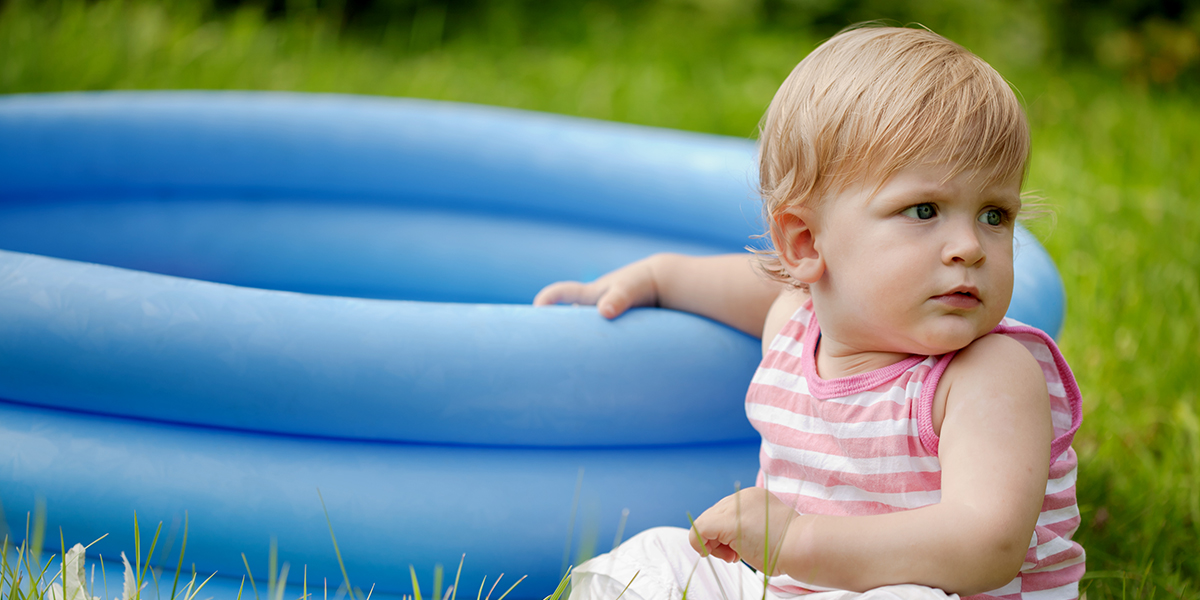 Portable swimming pools include inflatable pools, pools incorporating a canvas or flexible plastic liner attached to a frame, and hard plastic pools such as wading pools. Depths vary from less than 15cm to over one metre.
Portable swimming pools include inflatable pools, pools incorporating a canvas or flexible plastic liner attached to a frame, and hard plastic pools such as wading pools. Depths vary from less than 15cm to over one metre.
Portable pools pose a serious drowning risk to small children. Even with very little water, it only takes seconds for a child to drown in a portable pool.
Young children are naturally fascinated by water and are top heavy so when they lean over to look into water or reach for an object they can easily topple over and drown in just a few centimetres of water.
In most States and Territories, portable pools that are 30cm deep or more must be fenced. Further information on specific legislation can be obtained from local councils.
Australian Consumer Law requires portable pools and their retail packaging to be labelled with warnings to draw attention to drowning hazards and local fencing laws. This is enforced by the Australian Competition and Consumer Commission (ACCC) and State and Territory regulators.
Children must be supervised by an adult when in, on or around water. Active supervision means focusing all of your attention on your child, all of the time. You must be within arms’ reach, interacting with your child and be ready to enter the water in case of an emergency. Never rely on older children to supervise younger children, no matter how confident you are in their ability.
Make sure the pool fence is correctly installed and regularly maintained with a self-closing and self-latching gate. Royal Life Saving’s Home Pool Safety Checklist can help. Remember to never prop the gate open.
For smaller pools, ensure they are emptied and put away after use. When not in use, store the pool securely out of reach of young children. Ensure the pool cannot fill with rainwater or water from sprinklers.
Remember to check the number of adults or children the pool can safely hold. Do not exceed this capacity.
